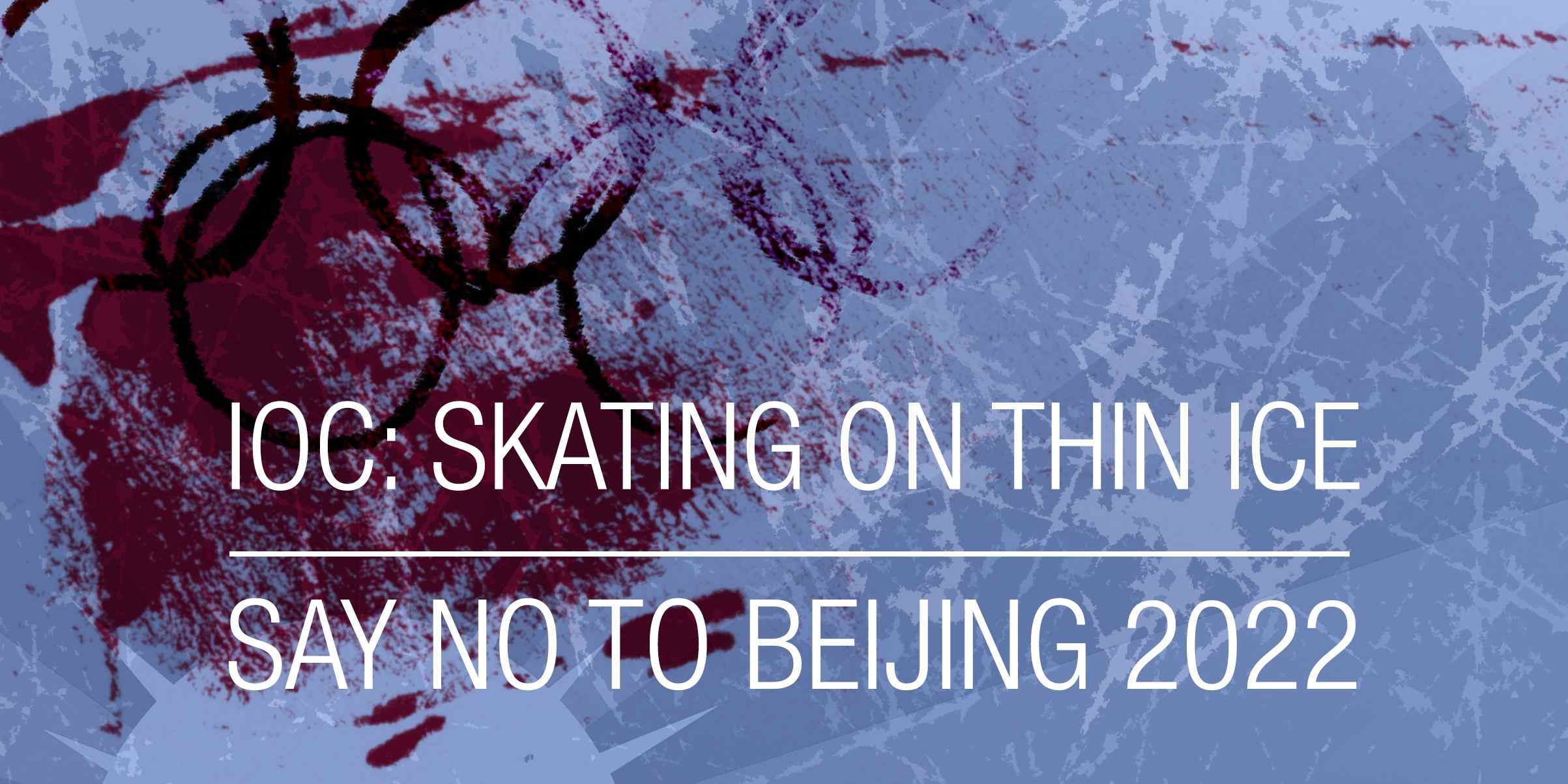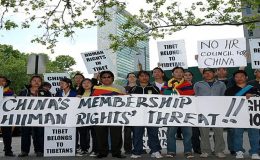MEDIA RELEASE
1 June 2015 [For Immediate Use]
Tibet campaigners launch global petition against Beijing Olympics bid; accuse IOC of “Skating on Thin Ice”
IOC Evaluation Commission accepts China’s assurances regarding human rights but gives no details of “written assurances”
As the International Olympic Committee (IOC) today released its evaluation report on the candidate cities to host the Winter Olympic Games in 2022, a global coalition of Tibet organisations launched a Change.org petition urging the IOC to reject China’s bid. The Evaluation Commission reports that China has provided “written assurances regarding human rights, the right to demonstrate, media freedom to report on the Games with no restrictions on the Internet, labour rights, displacement and environmental protection. ” However details of these assurance were lacking in the report despite the Commission stating it “is confident that the Government of China would take all necessary measures to ensure the Olympic Charter and Host City Contract would be respected”. [1]
In response, the Tibet groups’ petition calls on the IOC not to reward China’s oppression with the Olympic Games – again – stating “Since the 2008 Games, China’s aggressive and unrelenting crackdown against freedom and human rights has increased two-fold. For Tibetans every inch of their life is under siege….. To award Beijing another Olympic Games, in the knowledge of the ongoing serious abuses, is akin to saying that torture and repression are acceptable to the world community”. [2]
Tenzin Jigdal of the International Tibet Network, Dharamsala, India, said:
“It seems unbelievable – considering that since 2008 those living under Chinese rule have faced a crackdown on their freedoms like we haven’t seen since the Cultural Revolution – for the IOC to simply accept “written assurances” from China regarding human rights. Given the IOC’s knowledge of the ongoing brutal repression across China and Tibet, we get the impression that they are prepared to turn a blind-eye, as if these actions are an irrelevant detail. Our new petition gives concerned citizens the chance to tell the IOC that China doesn’t deserve the Games.”
In March, Tibet campaigners sent a report – Losing the Bet on Human Rights: Beijing and the Olympic Games [3] – to the IOC and IOC members, arguing that the award of the 2008 Summer Games to Beijing not only failed to lead to any improvement in human rights in China and Tibet – as IOC officials had claimed it would – but may have emboldened China to increase repression. [4]
In response, Chinese state media claimed that the campaign by Tibet groups concerning human rights abuses “will only cause laughter among the IOC officials who know Beijing and China better than the protesters do.” [5]
Human rights abuses by China increased before the 2008 Games, culminating in the brutal suppression of the Tibetan uprising against Chinese rule in March 2008 under the gaze of the world’s media. Since 2008, respect for human rights in China has declined further, with a concerted attack on dissent and human rights defenders since President Xi Jinping came to power in 2012 and an increase in repression in Tibet [6].
Alistair Currie of Free Tibet said:
“China’s claim that accusations of human rights abuse would be greeted with ‘laughter’ by members of the IOC doesn’t just insult their probity and intelligence, it sends a clear message that China will exploit the propaganda opportunity presented by the Games as extensively and cynically as it can. Those comments are also further proof that awarding China the Games will be seen in Beijing as validation of the repression it has ratcheted up on Tibetans and Chinese citizens since 2008. Within a couple of weeks, Beijing’s bid committee will be coming to sell its wares in Lausanne: their strategy will be to belittle and ignore human rights issues. The IOC mustn’t let them get away with it.”
-ends-
Contacts:
Alistair Currie, Free Tibet (London, GMT): E: Alistair@freetibet.org, Tel: +44 (0)207 324 4605, Mobile: +44 (0)780 165 4011
Tenzin Jigdal, International Tibet Network (India, GMT + 5.30hrs): E: jigdal@tibetnetwork.org, T: +988 225 5516
Notes for editors
International Olympic Committee timetable:
9 – 10 June 2015: Candidate city briefing to IOC members in Lausanne
31 July 2015: 2022 Winning city announced in Kuala Lumpur
[1] See pages 72 & 73 of the Evaluation Commission’s report http://www.olympic.org/Documents/Host_city_elections/ioc_evaluation_commission_report_sp_lr_eng.pdf. The Commission uses identical language to describe its confidence that the Government of Kazakhstan would ensure the Olympic Charter and Host City Contract would be respected.
[2] IOC: Don’t reward China’s worsening oppression with another Olympic Games, https://www.change.org/p/international-olympic-committee-ioc-don-t-reward-china-s-worsening-oppression-with-another-olympic-games
[3] ‘Losing the Bet on Human Rights: Beijing and the Olympic Games’ and a full list of supporting Tibet organisations is available at https://tibetnetwork.org/olympics2022/
[4] Comments regarding human rights in China made by IOC members and officials relating to the 2008 Summer Olympics:
“We are totally aware there is one issue on the table, and that is human rights. Either you say because of some serious human rights issues, we close the door, deliver a vote that is regarded as a sanction and hope things evolve better. The other way is to bet on openness. We are taking the bet that we will see many changes.” IOC Director General François Carrard, IOC news conference, 13 July 2001 http://www.nytimes.com/2008/08/03/sports/olympics/03longman.html?pagewanted=print&_r=0
“We are convinced that the Olympic Games will improve human rights in China.” IOC president Jacques Rogge, BBC Hardtalk, April 2002
“The decision in 2001 to give the Games to China was made in the hope of improvement in human rights and, indeed, the Chinese themselves said that having the Games would accelerate progress in such matters.” – IOC member Dick Pound in his book Inside the Olympics (John Wiley & Sons, 2006)
[5] Global Times http://www.globaltimes.cn/content/913257.shtml
[6] In March 2008, five months before the Beijing Games, a mass uprising against Chinese rule took place in Tibet. China’s response was repression leading to the detention of around 3,000 Tibetans and at least 100 deaths. Since 2008, repression has continued in Tibet. See http://freetibet.org/about/human-rights-tibet
International Tibet Network is a global coalition of 180 Tibet Groups working to end the human rights violations in Tibet and restore the Tibetan people’s right under international law to determine their own political, economic, social, religious, and cultural status – www.TibetNetwork.org





